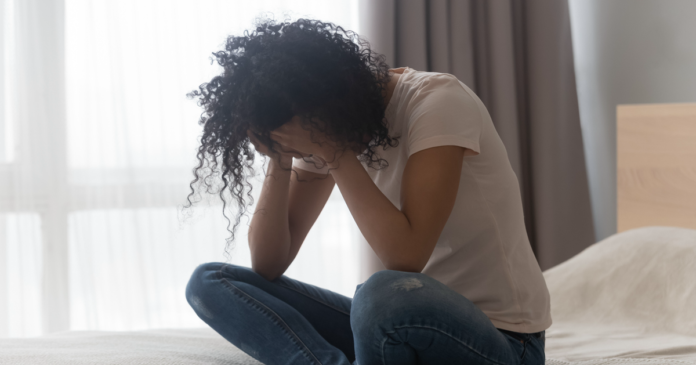Grief is a natural response to the loss of a loved one, but it can sometimes
lead to mental health challenges. Being able to recognize the signs can
empower you to care for your emotional well-being as you navigate the
grieving process.
Here’s how grief might affect you and when it could signal a deeper issue.
Grief and depression
Grief can sometimes look like depression, but they are not the same. Both
can cause crying, anger, emotional distress, and changes in your eating and
sleeping habits. However,
there are major differences between them.
- Cause: Grief has an identifiable cause; depression does
not. - Self-esteem: Grief rarely affects someone’s self-worth,
while depression often does. - Emotional response: Grief can coexist with positive
memories; depression usually does not. - Pleasure: You can still experience moments of happiness
while grieving. It’s much harder when you’re depressed. - Duration: Feelings of grief usually lessen in time.
Symptoms of depression may persist or even intensify.
If you’re struggling with grief, there are
numerous organizations
that can provide you with support. In some cases, grief can cause someone to
develop
major depressive disorder, so it’s important to consult a doctor if you’re having difficulty coping
with a significant loss.
Both grief and depression can be treated with
psychotherapy, and depression may also be treated with medications such as an selective
serotonin uptake inhibitor (SSRI).
Prolonged grief disorder
It’s normal for feelings of grief to last for a long time. However, if it
still dominates your life after a year, you may have
prolonged grief disorder, also known as
complicated grief.
To be diagnosed with prolonged grief disorder, you must:
• Have lost a loved one 12 or more months ago.
• Intensely long for them and/or be preoccupied by thoughts of them nearly
every day
• Be significantly distressed and/or have trouble functioning at work or in
social situations
• Have a bereavement reaction that is longer and more severe than would be
expected given your social, cultural, and religious norms
• Have symptoms that aren’t better explained by other mental health conditions
You must also experience three of the following symptoms nearly every day:
• Identity disruption, which is feeling as though part of you died along with
your loved one
• Disbelief about the death
• Avoidance of reminders that your loved one has passed
• Intense emotional pain related to the death
• Difficulty returning to your normal life after the death
• Emotional numbness
• Feelings of meaninglessness
• Intense loneliness
Prolonged grief disorder is more likely if you had a challenging childhood
or have a history of mental health issues, experienced multiple losses,
lacked social support, or faced major conflicts or financial struggles after
the loss.
The
primary treatments for prolonged grief disorder
are specialized forms of psychotherapy and bereavement support groups.
Anxiety disorder
Prolonged grief disorder can increase the risk of developing
anxiety disorder, and vice versa.
Anxiety disorder may cause you to:
• Worry excessively
• Feel irritable, restless, and have trouble concentrating
• Become easily fatigued and have trouble sleeping
• Experience muscle tension, specific phobias, and social anxiety
Panic attacks, identified by symptoms like shortness of breath, chest pain, and fear of
dying, may also occur. If you experience one, you should let your doctor
know so they can determine if psychotherapy and/or medication is needed.
Substance abuse disorders
Grief — especially prolonged grief — increases your risk of developing a
substance use disorder
as a way to numb the emotional pain. However, using substances to cope with
a loss only delays the healing process. If you find yourself turning to
drugs or alcohol to reduce the pain caused by your grief, it’s important to
seek professional help.
Post-traumatic stress disorder
Some people may develop
post-traumatic stress disorder (PTSD)
due to the circumstances of a loved one’s death. Symptoms can include
aggressive or emotional outbursts, jumpiness, distrust of others, nightmares
and/or flashbacks, and difficulty with sleep, eating, or physical intimacy.
PTSD can dramatically affect a person’s health and quality of life, and it
may not improve without treatment.
Everyone deals with grief differently
Grieving is a normal process to go through after suffering a loss and there
is no “right” way to do it. However, being aware of the signs that grief may
be leading to more serious mental health issues can help you take action
before it becomes a larger problem. Remember, seeking professional help is a
strength, not a weakness!



